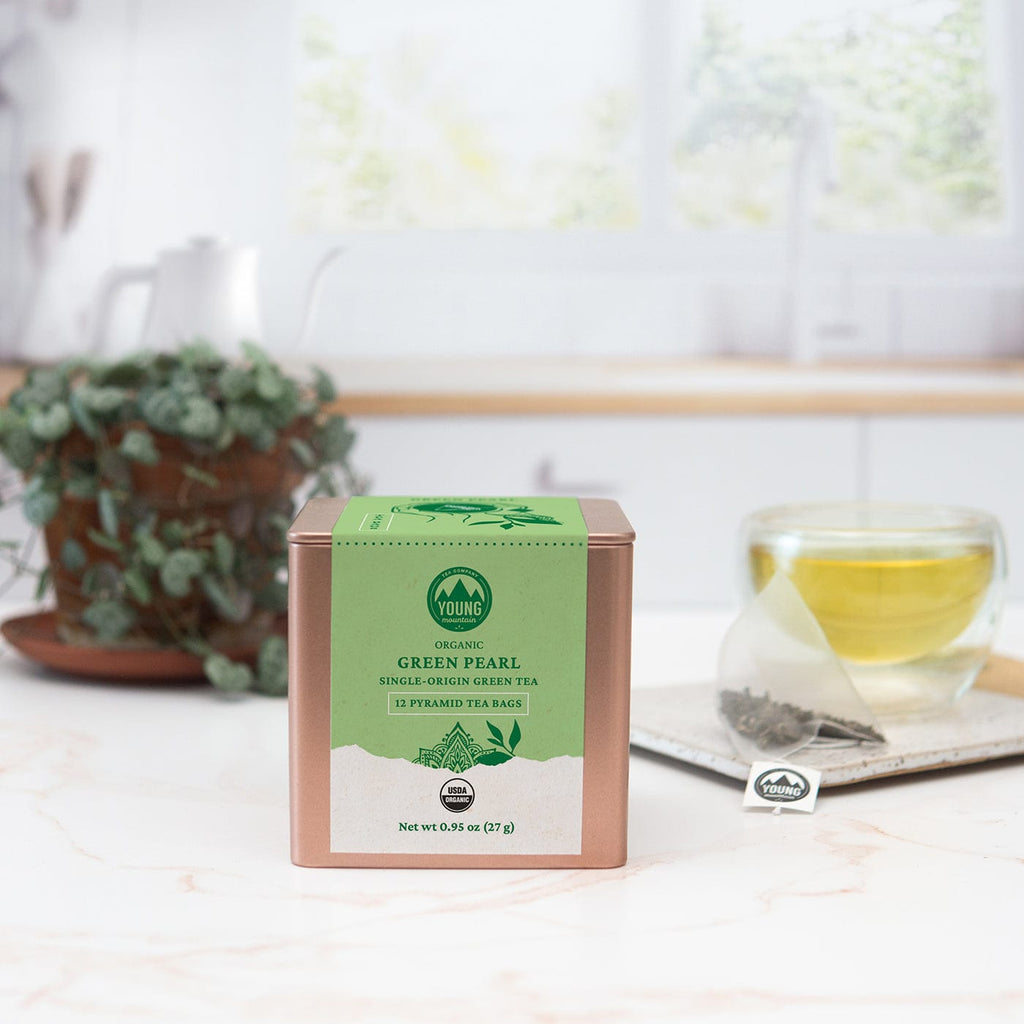
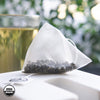
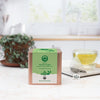
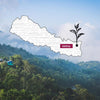
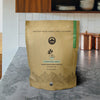
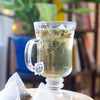
$15.99
The tightly-wound pearls of tea inside each sachet unfurl to release fresh, vibrant flavors that erupt out of the cup. The tea makers at the Tinjure Cooperative carefully shape the leaf using heated pans, coaxing out a wide range of aromas and flavors that are best explored by steeping the same leaves at least twice. This popular green is also available in loose-leaf, where it’s named Nepali Green Pearl.
Taste: Meyer lemon & smoked artichoke
Origin: Ilam, Eastern Nepali Himalayas
Tea Maker: Tinjure Cooperative
Infusion Suggestions:
Steep 1 8 oz | 180° F | 2.5 min
Steep 2 8 oz | 180° F | 4 min
Certifications: USDA Organic
Contains Caffeine
Tasting Notes: On the first infusion, organic Gunpowder Green leaps from the cup with a citrus bouquet. It relaxes with the second steep, its tightly wound pearls unfurling to release notes of oceanic seaweed and savory smoked artichoke. We suggest starting with a light, short steep to best unlock this tea’s vegetal potential, then moving into a longer, hotter second steep. Fans of matcha green tea or high quality Japanese sencha are likely to enjoy this tea.
Production: Tea makers create this iconic green tea by initially hitting the freshly harvested leaf with a blast of dry heat, pulling out moisture and adding cooked, smoky notes. This initial “kill green” step, as it’s known, stops the oxidizing reaction that would otherwise turn the leaves into a black tea. Next, a brief rolling step breaks the leaf’s cell walls open and coats the tea in its own essential oils. After, the leaves are shaped into pearls using heated metal pans that toss the leaf gently in the air. The final step is to dry the tea again, which seals in the final flavor.
Region: The most famous of Nepal’s tea growing regions are adjacent to Darjeeling, sitting in the shadows of Mt. Everest. Historically, most Nepali tea was sold as knock-off Darjeeling, given the two neighboring region’s identical growing conditions. The recent birth of Nepal’s unique tea identity is being led by small-scale farmers, who are blending tradition with innovation, paving a new community-level model of south Asian tea.
Tea Makers: We met the Tinjure Cooperative by accident in 2015, but they had been hard at work for about 20 years before that. In the 1990s, three Nepali villages on connected hillsides joined forces and began growing organic tea as a cooperative. They named themselves Tinjure in tribute to their shared mountainous landscape -- Tin (“teen”) means three, and jure (“joo-ray”) means hills. Initially, Tinjure didn’t own processing equipment, so its farmer members sold their harvest to nearby tea gardens who had the means to process the leaves. Then in 2013, the cooperative raised funds to establish its own processing facility. Today, the Tinjure Cooperative is 240 members strong.
Impact: Tinjure runs Nepal’s first cooperatively owned and operated tea processing facility. By processing their own teas, farmers at Tinjure earn 20 times more than they did when selling their harvest to privately-run factories. Today, Tinjure’s board of directors includes both women and men, paving the way for female leadership in a male dominated industry.
Packaging: Our commitment to sustainability means we offer our teas in several types of packaging: